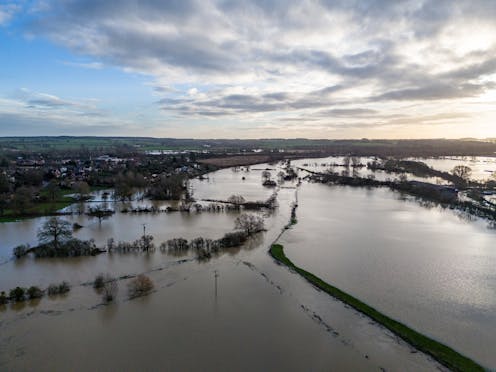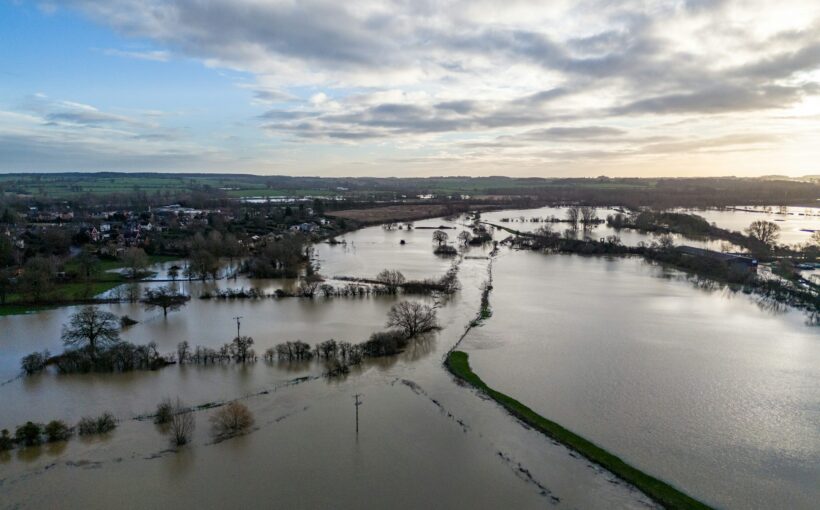
As climate and biodiversity scientists, we spend most of our lives trying to understand how our planet works and how best to address the environmental challenges of our times. Yet, for the past three years, many scientists around the UK, including the two of us, have been working on legislation and engaging with parliamentarians. We believe that many of the fundamental flaws in the way we tackle the current environmental crisis is due to missing pieces in national policies and laws.
This week is a key moment for the future of the UK. On January 24, the cross-party climate and nature bill is up for debate in parliament. There is huge support for the bill including a lot of support for the bill during our briefing to MPs last week – what happens next will be decided on Friday.
In short, this bill would: put our stated international targets into national law, making sure we walk the talk; account for overseas emissions and ecological damage driven by our imports; ensure a just transition and; include a climate and nature citizens’ assembly. The bill is vital because we so desperately need to increase our ambitions in the face of rapid environmental change.
We are facing a stark future. Even the UN’s climate authority, the Intergovernmental Panel on Climate Change (IPCC) has generally underestimated how bad things could get.
The UK is also being hit harder and deeper than once thought. In 2021, the chance of breaching 40°C by 2040 was expected to only be 0.02%. Yet, that temperature was exceeded in both rural and urban areas just one year later. These extremes are already hitting our wallets, with climate change driving an estimated one-third of food price inflation.
Meanwhile, the UK ranks among the world’s most nature-depleted countries. One report suggests that England is unlikely to meet its 2030 target. This rapid biodiversity loss threatens our food security, air and water quality, economy as well as health and wellbeing.
It’s clear these climate and nature crises are intertwined. The world cannot hope to address climate change and biodiversity loss in isolation.
Our best chance of stabilising our climate and adapting to the changes ahead lies in protecting and actively restoring nature. Healthy ecosystems act as carbon sinks, drawing down carbon from the atmosphere that can be stored in peatlands, woodlands, oceans and wetlands.
Conversely, unchecked emissions will continue to ravage our natural world, creating a vicious cycle of environmental damage. Recent UK floods and England’s second worst harvest on record were both exacerbated by degraded ecosystems less able to cope with extreme weather.
A joined-up approach
The UK has made some solid international commitments on both climate change and nature loss; however, most of them are not enshrined in law.
UK carbon budgets are not in line with the UK’s internationally announced reductions, allowing the UK to emit more than its pledges. Similarly, even though we have signed international agreements to cut methane emissions by 2030, this hasn’t been passed into domestic law.
For nature, the UK adopted the 2022 Kunming-Montreal global biodiversity framework, committing to ambitious targets that include restoring 30% of degraded ecosystems by 2030. Yet, again, these have not been locked into national law.
On top of these gaps, there is currently no legislation that addresses both climate and nature together. This is a huge problem because efforts to tackle one crisis individually can inadvertently make the other worse. For example, the use of biofuel plantations can be inefficient, harm wildlife during harvesting and result in monoculture plantations in the UK or overseas with lower diversity and resilience.
Failing to meet our global commitments not only reduces the UK’s credibility on the international stage, it also reduces our opportunities.
Action on climate and nature would keep food prices lower, reduce flooding, clean our air and water, and so much more.
Short-termism has long plagued environmental policy. Setting up a legislative approach that transcends governments and ministers would ensure that our commitment to addressing these crises remains steadfast, regardless of political winds and climate extremes.
By providing a clear, legally binding plan for action, the climate and nature bill will drive innovation across industries and provide much-needed certainty to markets. This will spur job creation and economic growth in emerging green sectors, improving the welfare of communities across the UK.
The climate and nature bill’s emphasis on a just transition means that vulnerable communities will be protected and workers in high-impact industries are supported with further training and financial assistance. A citizens’ assembly ensures that there is broad, public buy in for specific policies to meet our goals.
What we do now will dictate the future of our planet and our society. The climate and nature bill presents us with a clear choice: we can either rise to the challenge of our time, safeguarding our planet and future generations, or continue down the path to destruction. The science is clear, the solutions are within reach, and the climate and nature bill provides the roadmap.
![]()
I work at the Oxford Martin School at the University of Oxford and receive public funding from the British Academy and the EU Horizon program to work on food and climate, wellbeing economies, and carbon sequestration. I am one of the >1,000 scientists supporting the CAN Bill.
I work at the Institute of Zoology, Zoological Society of London. I receive funding for biodiversity-related work from Research England, the UKRI and the Biodiversity Landscapes Fund. I am a member of the UK Government’s Biodiversity Expert Committee and a member of the Office for Environmental Protection’s College of Experts. I am one of the >1,000 scientists supporting the CAN Bill.



